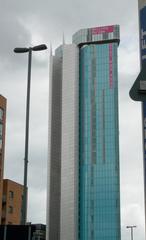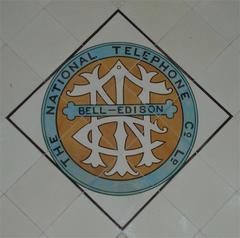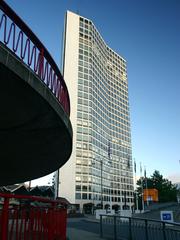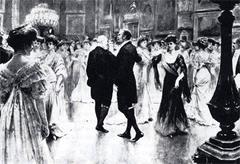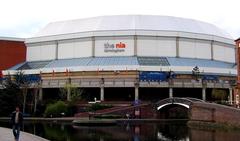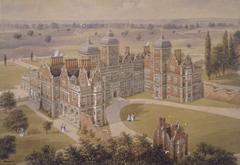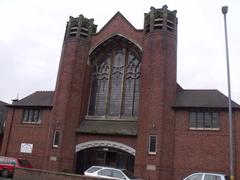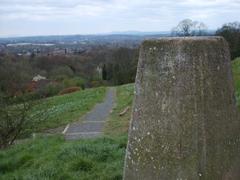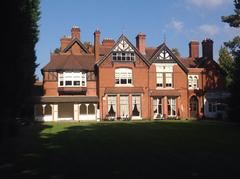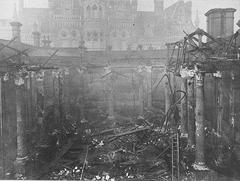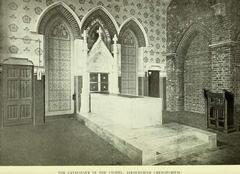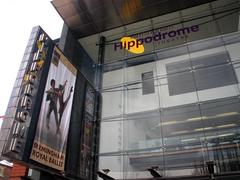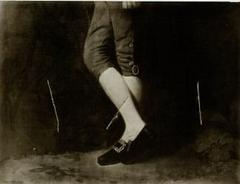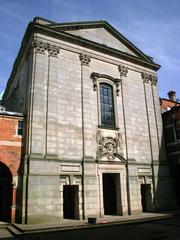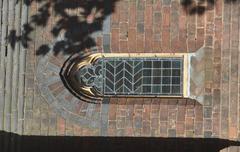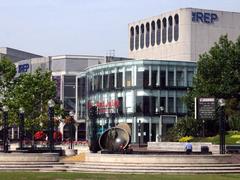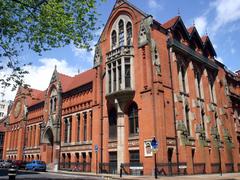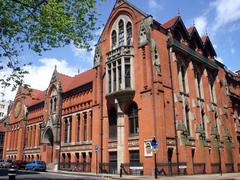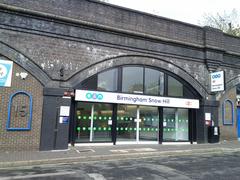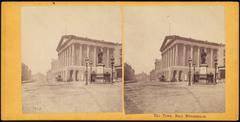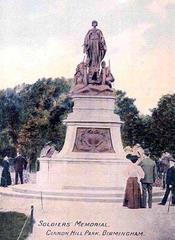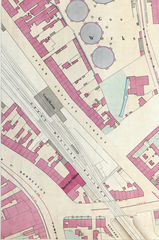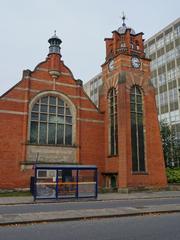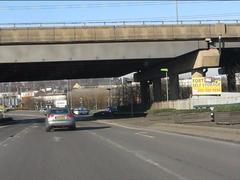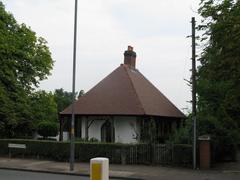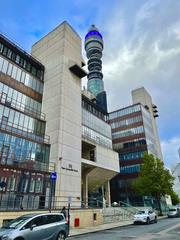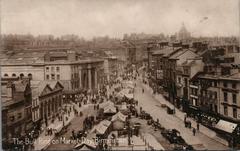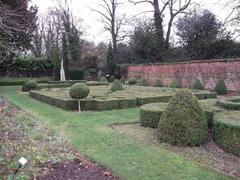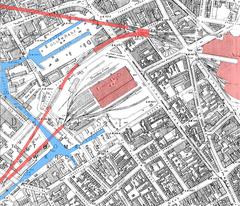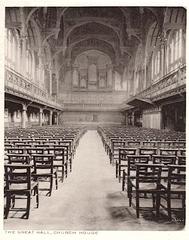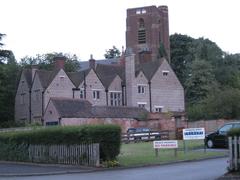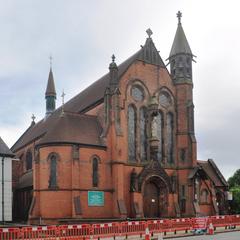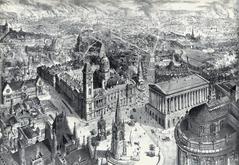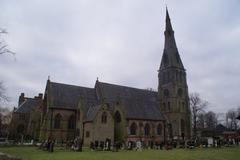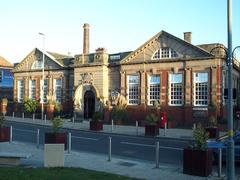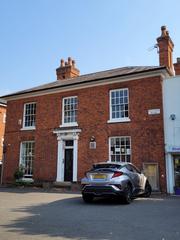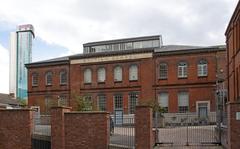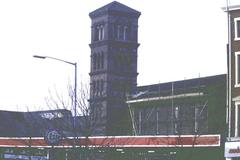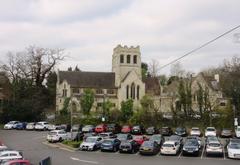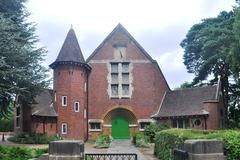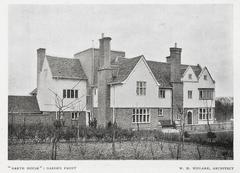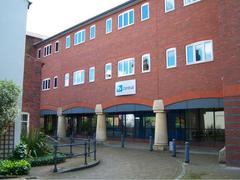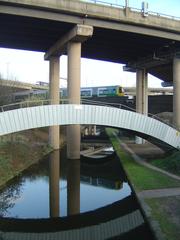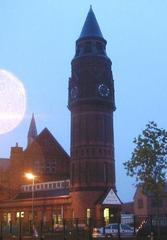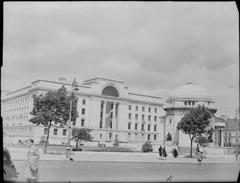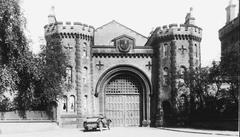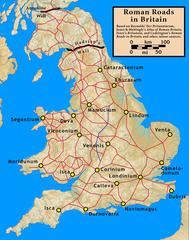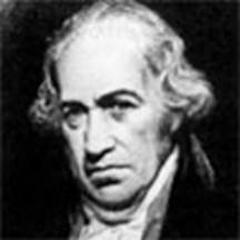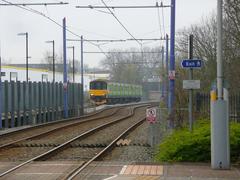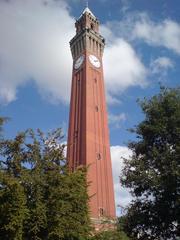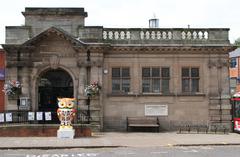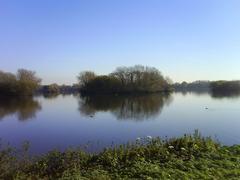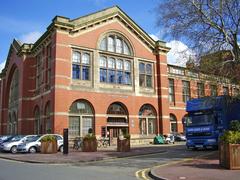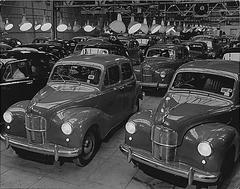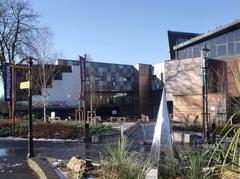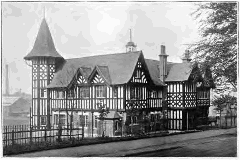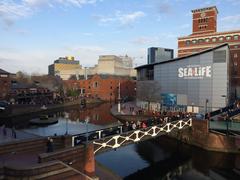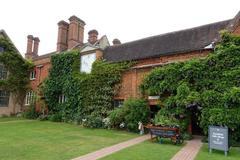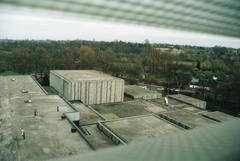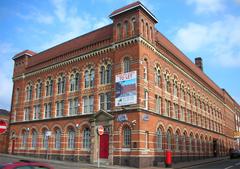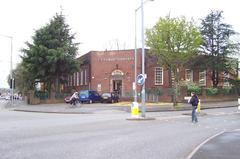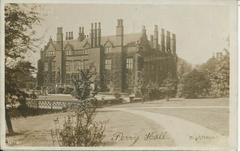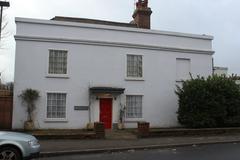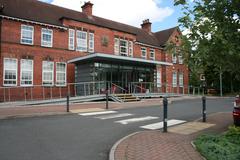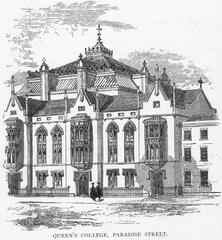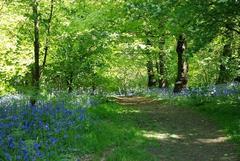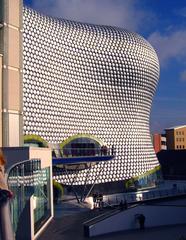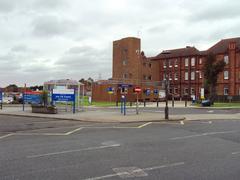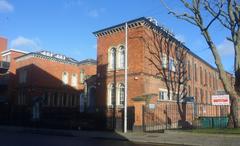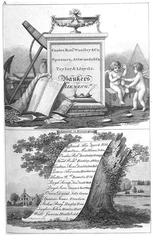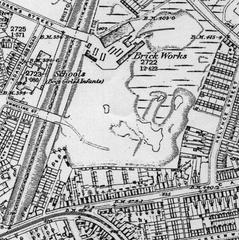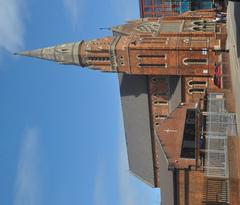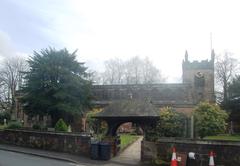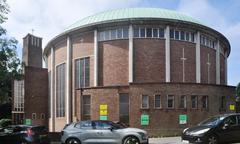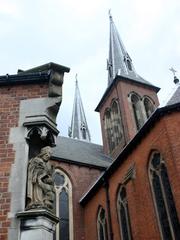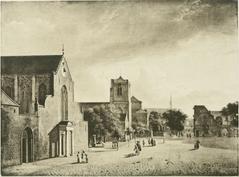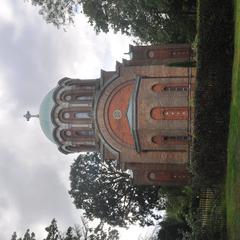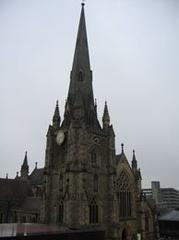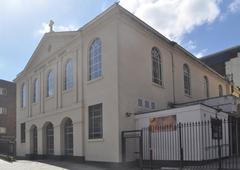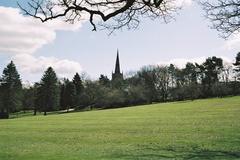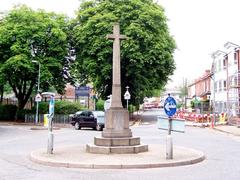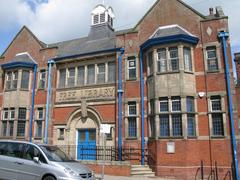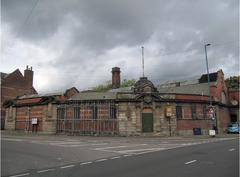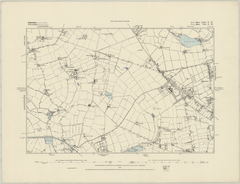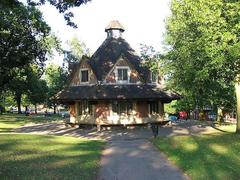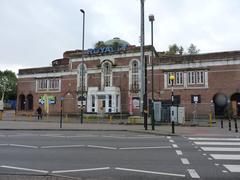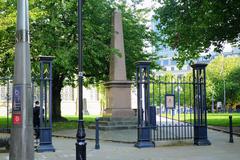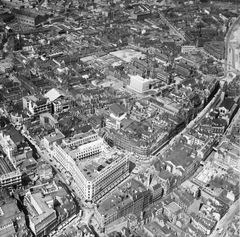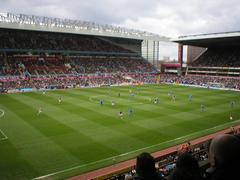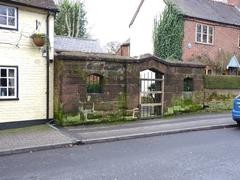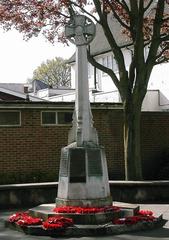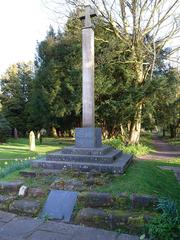New Hall Mill Visiting Hours, Tickets, and Birmingham Historical Sites Guide
Date: 04/07/2025
Introduction: Discovering New Hall Mill’s Heritage
Nestled within the scenic Newhall Valley Country Park in Sutton Coldfield, just northeast of Birmingham, New Hall Mill is a rare surviving example of an 18th-century working watermill. As a Grade II* listed structure, the mill stands as a living monument to Birmingham’s industrial and rural past, offering a blend of traditional milling technology, architectural heritage, and natural beauty. Operated by the New Hall Water Mill Preservation Trust and a dedicated team of volunteers, the mill provides an immersive educational experience and a tranquil escape for visitors of all ages.
Whether you are passionate about history, looking for a family-friendly outing, or eager to explore Birmingham’s green spaces, this guide details everything you need to plan a visit—from New Hall Mill visiting hours and tickets to accessibility, nearby attractions, and practical travel tips. For the latest updates and information, refer to the official New Hall Mill website, Visit Birmingham, and Wanderlog.
Table of Contents
- Overview & Significance
- Historical Development
- Architecture & Key Features
- Planning Your Visit
- Visitor Experience
- Nearby Attractions
- Frequently Asked Questions
- Support & Community Involvement
- Summary & Travel Tips
- References
Overview & Significance
New Hall Mill stands as one of Birmingham’s last two operational watermills, offering a rare window into centuries-old milling practices and the evolution of rural industry in the West Midlands. Its story weaves through the city’s agricultural foundations, industrial expansion, community resilience, and modern-day conservation efforts. The mill’s riverside setting within Newhall Valley Country Park enhances its appeal by combining heritage with opportunities for recreation and wildlife observation.
Historical Development
Origins and Early History
The origins of New Hall Mill trace back to the mid-16th century, when a modest watermill was constructed for the Gibbons family. By the early 18th century, the mill had evolved into a larger brick structure with timber elements, serving both as a workplace and a home for generations of millers.
18th and 19th Century Expansion
Throughout the 18th and 19th centuries, New Hall Mill underwent substantial expansion to accommodate technological advances. The installation of a sizable overshot waterwheel increased capacity and efficiency, enabling the mill to play a central role in the local agricultural economy. Families such as the Duttons, Bridges, and Brockases managed the mill during this era, adapting to changing economic conditions and technological progress.
20th Century Decline and Restoration
Competition from modern mills led to a shift in production from flour to animal feed before commercial operations ceased in the late 20th century. Restoration began in the 1970s, spearheaded by preservation trusts and local supporters, culminating in its reopening as a working museum in 1996. Today, New Hall Mill continues to educate and inspire, maintained by a dedicated volunteer community.
Architecture & Key Features
Structural Layout
- Main Mill Building: Constructed from locally sourced red brick in English bond, the two-storey structure features exposed timber framing, a pitched clay tile roof, and recessed windows for energy efficiency.
- Waterwheel: The 12-foot (3.7 m) overshot waterwheel, made of timber and iron, is powered by a stream redirected via a brick-and-stone mill race, with sluice gates controlling water flow.
- Internal Machinery: Original wooden and iron gears, French burr millstones, sack hoists, and flour dressing machines demonstrate historic milling processes.
- Ancillary Buildings: Outbuildings such as the former stable (now a gift shop/exhibition area) and tea room mirror the main mill’s architecture and enhance the visitor experience (Geograph - New Hall Mill).
Restoration and Conservation
The mill has been restored using traditional materials—lime mortar, seasoned hardwood, and period-appropriate iron fittings—while incorporating subtle modern safety features. This approach preserves authenticity and ensures operational demonstrations remain safe for visitors (New Hall Mill Visitor Information).
Planning Your Visit
Visiting Hours & Tickets
-
Open Days: New Hall Mill is open to the public on select Sundays and Bank Holidays from late spring through early autumn (typically April to September).
-
2025 Open Days:
- Sunday 1 June
- Sunday 8 June
- Sunday 13 July
- Sunday 10 August
- Monday 25 August (Bank Holiday)
- Sunday 14 September
Visiting hours are generally 10:00 AM to 5:00 PM.
(Open Days schedule)
-
Admission: Free for individuals on Open Days; donations are encouraged. Group and school visits require advance booking and may involve a nominal fee (Ticket info).
Directions & Accessibility
- Location: New Hall Drive, off Wylde Green Road, Sutton Coldfield, B76 1QU.
- Parking: Free car and bike parking on-site.
- Public Transport: Accessible by bus from Birmingham city centre and Sutton Coldfield; Sutton Coldfield train station is nearby.
- Walking & Cycling: Connected to local trails within Newhall Valley Country Park.
Accessibility:
- Main floor and key facilities are accessible via gently sloping paths.
- Volunteers are available to assist visitors with limited mobility.
- Contact in advance for specific accessibility needs (access information).
Facilities & Amenities
- Restrooms: Available during Open Days.
- Tea Room: Offers light refreshments, cakes, and drinks.
- Gift Shop/Exhibition: Sells souvenirs, local crafts, and educational materials.
- Picnic Areas: Outdoor tables for visitors bringing their own food.
Visitor Experience
Guided Tours & Demonstrations
- Milling Demonstrations: Watch the waterwheel and millstones in action, with volunteers explaining traditional processes and machinery.
- Guided Tours: In-depth tours of the mill’s architecture, history, and restoration efforts are offered on Open Days.
- Interactive Exhibits: Explore displays on the history of water-powered industry and the role of New Hall Mill in the region (mill details).
Family-Friendly Activities
- Hands-On Displays: Children can participate in interactive activities and educational games.
- Nature Trails: The adjoining country park offers wildlife walks and outdoor play zones (country park facilities).
Photo Opportunities
Capture the mill’s historic waterwheel, brick architecture, and the lush meadows of Newhall Valley. Early afternoon provides the best lighting for photography. Visitors are encouraged to share their photos using #NewhallMill.
Nearby Attractions
- Newhall Valley Country Park: Over 160 acres of meadows, woodlands, and wetlands for walking, cycling, and birdwatching (country park details).
- Sutton Coldfield: Explore the Royal Town’s shops, dining, and the expansive Sutton Park.
- Birmingham City Centre: Discover Soho House Museum, the Jewellery Quarter, and other historical sites (visitor info).
Frequently Asked Questions (FAQ)
Q: Do I need to buy tickets?
A: Admission is free for individuals on Open Days; group visits require advance booking.
Q: When is the mill open?
A: Select Sundays and Bank Holidays between April and September, 10:00 AM – 5:00 PM. Check the official website for exact dates.
Q: Is the mill accessible for wheelchairs and strollers?
A: Yes, key areas are accessible, and volunteers can assist as needed.
Q: Are refreshments available?
A: Yes, the Tea Room and picnic areas are available on Open Days.
Q: Can I combine my visit with outdoor activities?
A: Yes, the mill is set within Newhall Valley Country Park, ideal for walks, cycling, and nature observation.
Q: Is parking available?
A: Free parking for cars and bikes is provided on-site.
Support & Community Involvement
New Hall Mill is preserved and operated by the New Hall Water Mill Preservation Trust and the Friends of New Hall Mill. The site thrives through community volunteering and donations. To support ongoing conservation or to get involved, visit the official website.
Stay updated on news, events, and volunteer opportunities by following New Hall Mill on social media.
Summary & Travel Tips
- Historic Experience: Step back in time with live demonstrations of traditional milling and learn about the mill’s role in Birmingham’s evolution.
- Family-Friendly: Activities and interactive exhibits for all ages.
- Accessibility: Paths and facilities accommodate most visitors; contact ahead for specific needs.
- Best Visiting Times: Open Days in spring and summer; check the schedule before planning your visit.
- Combine with Nature: Enjoy Newhall Valley Country Park’s trails, wildlife, and picnic spots.
Support the mill by making a donation, volunteering, or sharing your visit on social media. Every contribution helps safeguard this remarkable piece of Birmingham’s heritage for future generations.
References and Further Reading
- New Hall Mill official website
- New Hall Mill Visitor Information
- Visit Birmingham
- Wanderlog – Newhall Valley Country Park
- Geograph - New Hall Mill
- Local Country Parks – Newhall Valley Country Park
- Birmingham Heritage – Newhall Mill
- Visitor Info – Birmingham Guide
Step into the rhythm of the waterwheel and discover the living history of Birmingham at New Hall Mill—where past and present meet in a unique celebration of heritage, community, and nature.
